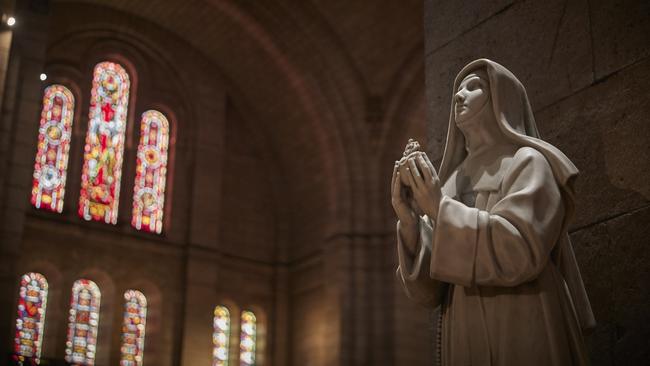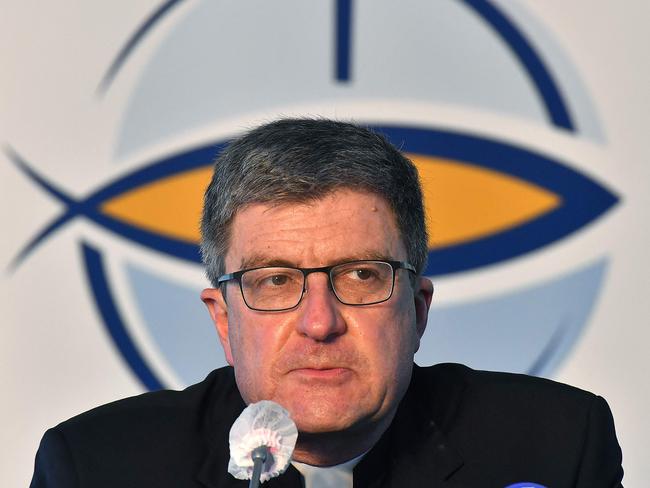How to solve the Catholic crisis? Give women a say
A feminist theologian has called on the French Catholic church to hand women senior roles after sex abuse revelations

France’s Roman Catholic church is going through one of the most difficult periods in its history. Mass attendance has been falling for years; it lost the battle over same-sex marriages; and, most painful of all, a report published this month estimates that 216,000 children have been sexually abused by its priests since 1950.
Anne Soupa, a leading theologian and a feminist, has a simple solution: women priests. “The more women, the less the amount of abuse. The Catholic church is paying the price for its refusal of women with a scale of abuse that is catastrophic.”

Soupa, 74, is not holding her breath. She has also launched a petition demanding that all 120 of France’s bishops take responsibility for the horrors revealed in the report and step down en masse.
“Resignation would be an acknowledgement of the seriousness of the situation,” she said of the petition she drew up with Christine Pedotti, a leading Catholic writer, and Francois Devaux, a campaigner who was among dozens of boy scouts abused in Lyons from the 1970s to the 90s by priest Bernard Preynat, 75.
“We are all in shock. What the report says cannot be denied,” Soupa added.
She said there was a gulf in the hierarchy of the French church between those who believed in the need for change and those who want to turn the page. “There were quite a few parishes where they did not even talk about the report last Sunday.”
Tensions are likely to come to a head in Lourdes on November 3, when France’s bishops begin an annual conference likely to be dominated by the issue.
Lay Catholics are using the hashtag #AussiNotreEglise — “It is our church, too” — on social media to demand a greater role in monitoring the activities of priests. Others are speaking out against calls for them to dip into their pockets to compensate victims.

The French bishops’ conference had spoken this year of raising an endowment fund of €5m ($7.8m). “Today, we may have to think about hundreds of millions of euros,” Luc Ravel, archbishop of Strasbourg, said after the report revealed the number of children abused — which rises to 330,000 once those abused by lay figures such as scout leaders are included.
The French branch of the Catholic church is not the first to be confronted with accusations of sex abuse. Yet the scale of what was revealed in the 2500-page report has dealt a serious blow.
Although Catholicism has marked French history and culture profoundly, less than half the population consider themselves Catholic, surveys show, and fewer than one in 10 attend Mass.
A particular twist has been added to the debate by France’s modern tradition of laicite (secularism), enshrined in a 1905 law separating church and state, which has made authorities sensitive to any suggestion that Catholicism has a privileged place in society.
Such sensitivities were highlighted when Eric de Moulins-Beaufort, the archbishop of Rheims, claimed after the publication of the report that a priest who learnt during confession about sex crimes against children would be barred from reporting this to authorities.

He provoked an outcry: critics said President Emmanuel Macron, as part of efforts to clamp down on militant Islam, criticised ultra-conservative Muslims for claiming that sharia took precedence over legislation.
Communities Minister Marlene Schiappa said it was not possible “to say to other religions that ‘you must respect laws of the republic’ ” while allowing Catholics an exception.
Moulins-Beaufort, who is also president of the bishops’ conference, was summoned for a dressing-down by Interior Minister Gerard Darmanin. In a contrite statement afterwards he insisted that the rite of confession must comply with the need to protect children.
The climbdown did little to assuage critics, who have filled the opinion pages of newspapers with proposals for reform, ranging from the moderate to the radical.
Soupa, who has penned several opinion pieces in recent days, has been a prominent participant in the debate. In 2008 she and Pedotti formed a campaigning group called Le Comite de la Jupe (The Skirt Committee) in response to comments by Andre Vingt-Trois, then archbishop of Paris, who said when asked about giving women a greater role: “It’s not enough just to wear a skirt, they need to have something in their heads.”
Last year, after Philippe Barbarin, the archbishop of Lyons, resigned over his handling of the boy scout abuse scandal, Soupa put her own name forward to replace him. It was a stunt: such jobs are not decided on the basis of application and the fact she is a woman made it even more unrealistic but it brought her publicity to promote her goals.
“Some will say that this gesture is crazy,” she wrote in her application. “Is there only one model of bishop, that of a single man, aged and dressed all in black?”
The Vatican appears to be moving Soupa’s way by considering a greater role for women.But progress has been slow.
The Sunday Times


